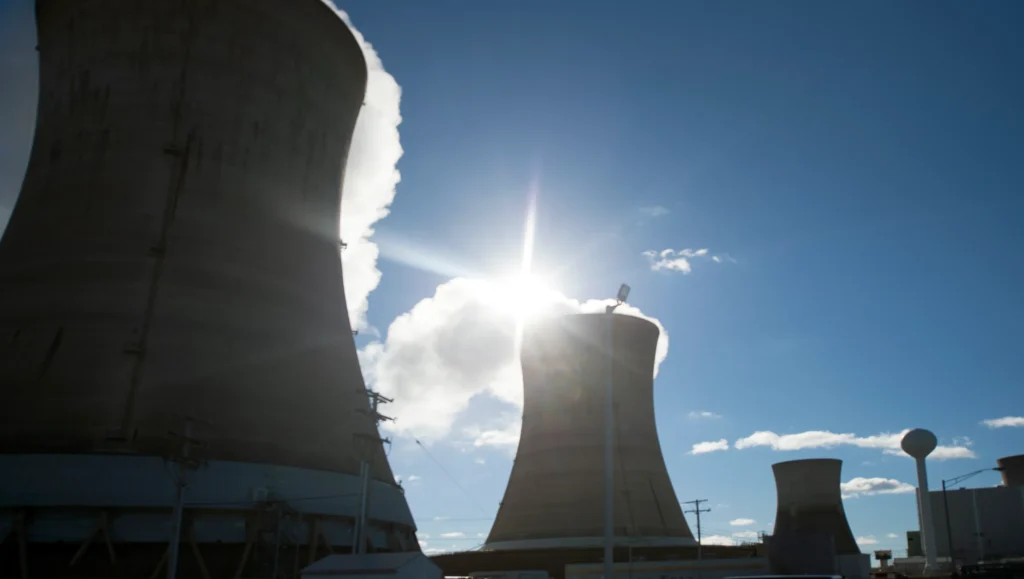In a surprising turn of events, Constellation Energy is preparing to resurrect the dormant Three Mile Island nuclear plant in Pennsylvania, which has remained silent since the last reactor was shut down in 2019. The once-bustling facility, now overgrown with grass and wildlife, is poised for a significant transformation as it aims to supply electricity to Microsoft’s data centers, highlighting the lengths to which tech giants are willing to go to secure power for their expanding operations.
Constellation recently announced plans to invest approximately $1.6 billion to restart Unit 1 of the plant, a project that is expected to take four years and require thousands of skilled workers. This ambitious endeavor underscores the growing demand for carbon-free energy sources as companies like Microsoft seek to meet their climate commitments amidst increasing scrutiny over their energy consumption.
During a recent tour of the nearly silent facility, Craig Smith, Constellation’s regulatory assurance manager, described the eerie atmosphere of the once-noisy plant. “It’s still eerie walking in here, and it’s just quiet,” he remarked, reflecting on the contrast to the facility’s past operations. Despite the challenges of reviving the plant, Smith expressed optimism, noting that the central generator remains in strong condition and is ready to support the restoration efforts.
Under a 20-year power purchase agreement, Microsoft is set to pay around $100 per megawatt-hour—nearly double the typical cost of renewable energy in the region—to power its data centers. This deal signifies a growing trend among major tech companies to secure reliable electricity sources as they expand their artificial intelligence capabilities. Microsoft’s senior director of Azure Global Infrastructure, Alistair Speirs, hinted that the company is open to exploring additional power purchase agreements to facilitate the reopening of other closed plants.
If successful, the restart of Three Mile Island could provide the regional grid with 835 megawatts of electricity, sufficient to power all of Philadelphia’s homes. However, significant hurdles remain, including necessary licensing modifications and local opposition fueled by safety and environmental concerns. Activists, including local resident Eric Epstein, have vowed to challenge Constellation’s plans, citing the plant’s controversial history, particularly the partial meltdown in 1979 that left a lasting mark on the U.S. nuclear industry.
Constellation is keen to avoid the pitfalls that have plagued many nuclear projects in the past, often characterized by lengthy delays and budget overruns. The company has already begun ordering essential equipment for the site and is gearing up for significant restoration work. This includes refurbishing the plant’s two cooling towers and upgrading major systems within the facility, all while adhering to strict safety standards.
As the company moves forward, it faces mounting pressure from both regulatory bodies and local communities. The Nuclear Regulatory Commission has scheduled a public hearing for October 25 to address the challenges surrounding Constellation’s plans, marking a crucial moment in the process.
The revival of Three Mile Island represents a broader resurgence of interest in nuclear power in the United States, driven by an increasing demand for clean energy sources. With Constellation’s stock price soaring by 135% this year, the company stands at the forefront of a potential nuclear renaissance, despite the lingering concerns about safety and waste management that continue to shadow the industry.
While the path to reopening Three Mile Island remains fraught with obstacles, the project could pave the way for a new chapter in nuclear energy, as the U.S. power industry seeks innovative solutions to meet the growing demands of a rapidly evolving technological landscape. The future of the iconic plant hangs in the balance, with its resurrection potentially signaling a significant shift in how America approaches energy production and consumption.



